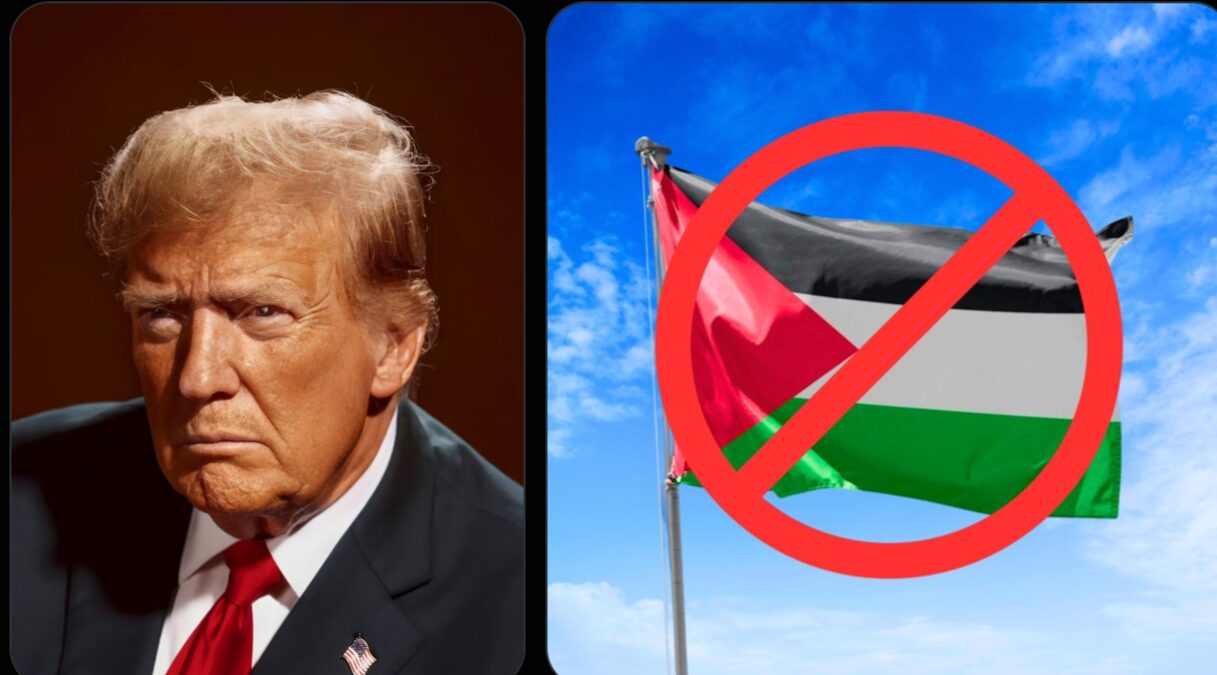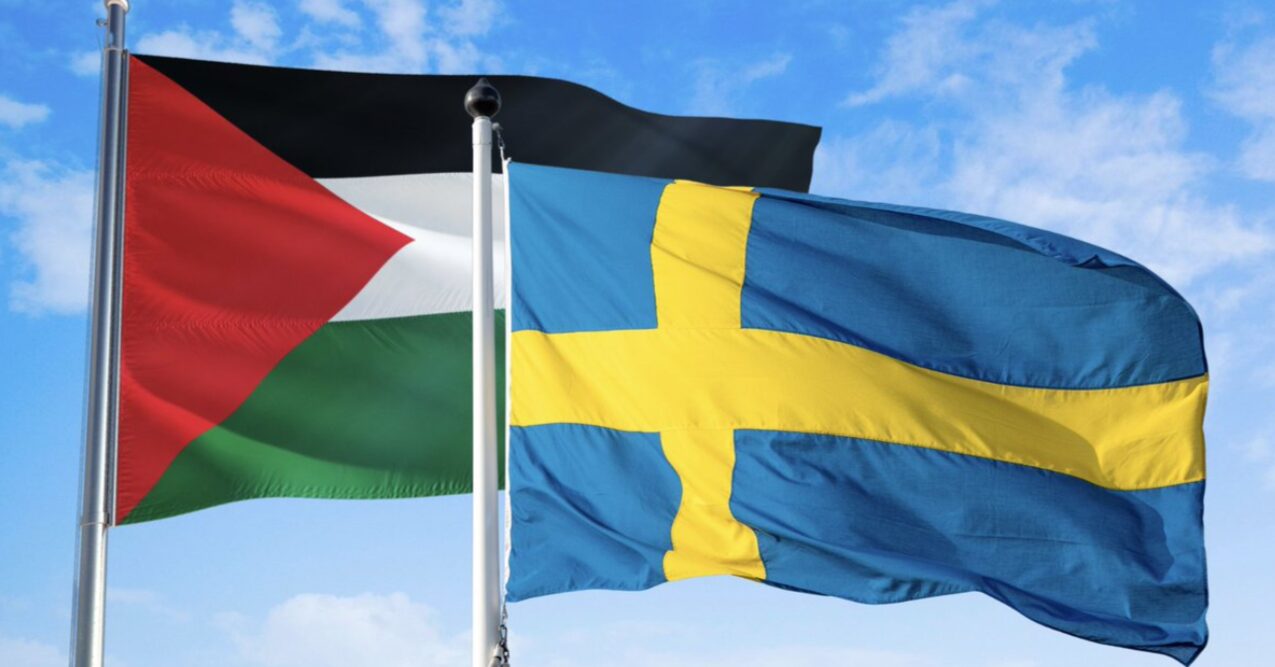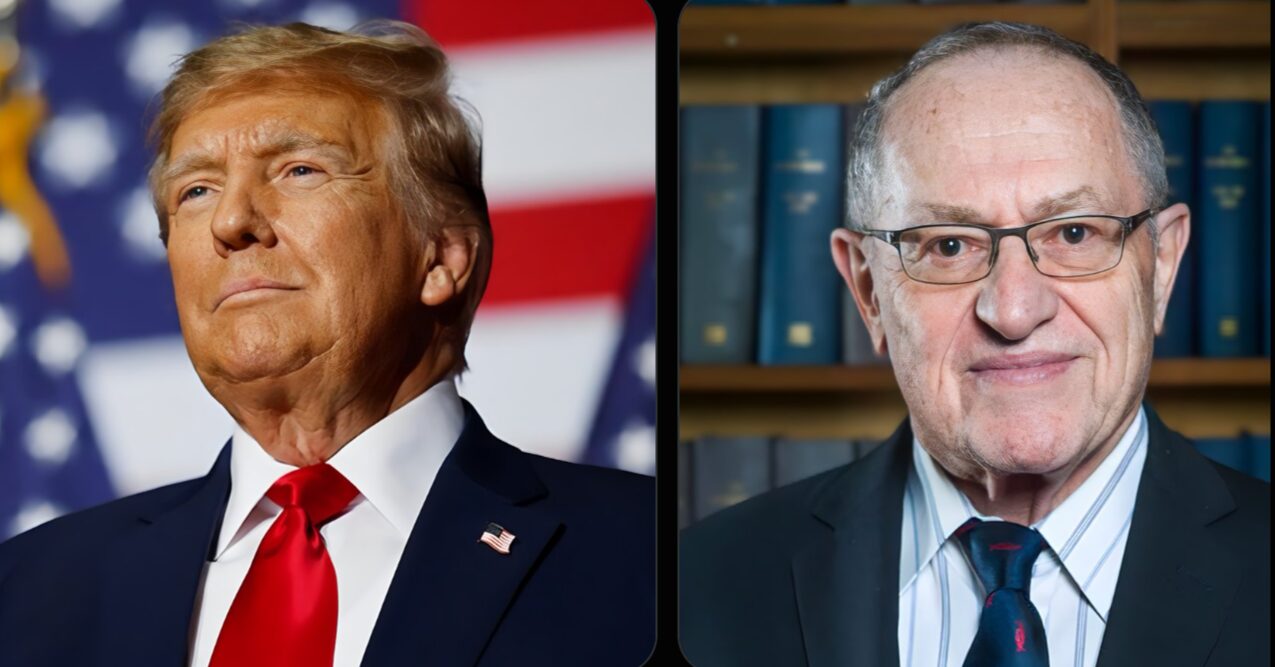TRUMP plans to STRIP PRO-PALESTINE organizations of non-profit status, while allowing Zionist groups to remain
In a move that has sparked significant controversy and debate, former President Donald Trump has announced plans to strip pro-Palestinian organizations in the United States of their non-profit status, while allowing Zionist groups to retain theirs. The proposed action has raised serious concerns about the future of free speech, political advocacy, and the role of non-profit organizations in promoting political causes.
Critics argue that such a policy could further entrench divisions in the already polarized debate over the Israeli-Palestinian conflict, while supporters claim it is a necessary step to combat what they perceive as anti-Semitic sentiments among certain Palestinian advocacy groups.
This proposed policy comes amid growing tensions between pro-Israel and pro-Palestinian advocacy groups in the U.S., particularly as both sides of the debate intensify their efforts to influence U.S. foreign policy toward the Middle East. Trump’s announcement adds another layer of complexity to the ongoing discussions about the role of the U.S. government in addressing the Israeli-Palestinian conflict and balancing competing interests in the region.
The Context: The Debate Over Non-Profit Status and Political Advocacy
Non-profit organizations in the United States play a critical role in political advocacy, education, and social change. They are granted tax-exempt status under the Internal Revenue Code, which allows them to operate without the burden of federal income taxes, provided they meet certain criteria. Non-profits are required to focus on specific social, educational, charitable, or advocacy goals and are prohibited from engaging in political campaigning or lobbying as their primary activities.
The issue of non-profit status has become increasingly important in the context of political movements, especially those related to contentious global issues such as the Israeli-Palestinian conflict. Pro-Palestinian and pro-Israel groups alike have used their non-profit status to raise funds, educate the public, and lobby lawmakers in favor of their respective causes. These organizations often serve as influential voices, shaping public opinion and policy discussions about the Middle East.
However, the question of which groups should be granted non-profit status has become increasingly politicized. Some argue that certain organizations, particularly those that advocate for Palestinian rights, should be denied this status if they are seen to promote anti-Israel rhetoric or activities. Others claim that the denial of non-profit status based on political beliefs infringes on free speech and freedom of association, which are fundamental rights protected by the U.S. Constitution.
Trump’s announcement to strip pro-Palestinian organizations of their non-profit status while allowing Zionist groups to retain theirs has ignited a firestorm of controversy. Supporters of the policy argue that it is necessary to counteract anti-Semitism and prevent the funding of groups that, in their view, promote terrorism or violence. Critics, on the other hand, see the policy as an attack on free speech and an attempt to stifle advocacy for Palestinian rights.
Trump’s Position on Pro-Palestinian Advocacy
Former President Trump has long been a staunch ally of Israel, and his administration’s policies reflected this stance. Trump made several significant moves during his time in office to strengthen U.S.-Israel ties, including recognizing Jerusalem as the capital of Israel, moving the U.S. embassy to Jerusalem, and withdrawing from the United Nations Human Rights Council, which he and many others viewed as biased against Israel.
In terms of Palestinian advocacy, Trump’s policies were consistently more favorable to Israel than to the Palestinians. He supported the controversial “Peace to Prosperity” plan, which many critics saw as heavily skewed in favor of Israeli interests, and he cut funding to Palestinian aid organizations, including those that provided critical humanitarian assistance in Gaza and the West Bank.
Trump’s rhetoric and actions have consistently aligned with pro-Israel, Zionist organizations, and he has often expressed disdain for pro-Palestinian advocacy, particularly when it is linked to the Boycott, Divestment, Sanctions (BDS) movement. The BDS movement, which calls for boycotting Israeli products, divesting from companies that do business with Israel, and pressuring governments to impose sanctions on Israel, has been criticized by many pro-Israel groups as promoting anti-Semitic sentiments and delegitimizing the state of Israel.
In his recent remarks, Trump reiterated his stance that pro-Palestinian groups, especially those that support BDS, should not be granted non-profit status, arguing that they encourage hatred and violence against Israel. His administration’s approach to the Palestinian cause was centered on isolating groups and movements that, in his view, delegitimized Israel or advocated for its destruction. Trump’s latest move to target pro-Palestinian non-profits signals a continuation of this policy, with the aim of limiting their influence in the U.S.
The Controversy: Free Speech vs. Anti-Semitism
Trump’s proposed action to strip non-profit status from pro-Palestinian organizations has raised significant concerns among civil rights groups, free speech advocates, and those who support Palestinian rights. Critics argue that the policy could be used to silence dissenting voices and inhibit legitimate advocacy for Palestinian self-determination. They contend that stripping non-profit status based on political views could have a chilling effect on free expression, particularly for marginalized groups advocating for their cause.
The issue is particularly sensitive given the long history of U.S. involvement in the Israeli-Palestinian conflict. Supporters of Palestinian rights argue that they have a right to advocate for a peaceful resolution to the conflict and to raise awareness about the human rights violations they believe Palestinians are suffering. Labeling this advocacy as anti-Semitic or un-American, they argue, only serves to shut down critical discussions about the future of the region.
On the other hand, proponents of Trump’s policy argue that certain Palestinian advocacy groups promote rhetoric that crosses the line into anti-Semitism, and that their non-profit status should not be allowed to support such views. They point to incidents in which pro-Palestinian activists have used language or engaged in actions that they view as harmful to Jewish communities or the legitimacy of Israel’s right to exist. These critics argue that by stripping non-profit status from groups that advocate for boycotting Israel or that engage in violent rhetoric, the U.S. government can send a clear message that such actions are unacceptable.
Zionist Organizations: Retaining Non-Profit Status
One of the most controversial aspects of Trump’s proposal is the suggestion that Zionist organizations, which actively support Israel and its policies, would be allowed to retain their non-profit status while pro-Palestinian groups would lose theirs. Critics argue that this creates a double standard, in which groups advocating for one side of the Israeli-Palestinian conflict are given preferential treatment while those advocating for the other side are silenced.
Zionist organizations have historically had significant influence in U.S. politics, particularly when it comes to shaping U.S. foreign policy in the Middle East. Many of these organizations have played a key role in advocating for U.S. support of Israel, and they often mobilize grassroots efforts to influence American politicians. Critics of the proposed policy argue that by allowing these groups to retain their non-profit status, the U.S. government is effectively siding with one narrative of the conflict while limiting the ability of Palestinian groups to advocate for their own perspective.
This dynamic has raised concerns about the potential for the U.S. to further entrench its support for Israel while simultaneously stifling Palestinian voices. For many in the Palestinian solidarity movement, Trump’s move represents an effort to marginalize their cause and prevent them from gaining the political traction necessary to bring about change.
Broader Implications: A Divisive Policy
Trump’s plan to strip non-profit status from pro-Palestinian organizations is likely to have far-reaching implications for both domestic and international politics. Domestically, it could lead to further polarization of the Israeli-Palestinian debate in the U.S., with each side digging in their heels and accusing the other of silencing legitimate political advocacy. Internationally, it may fuel perceptions that the U.S. is unilaterally siding with Israel while ignoring the rights and concerns of the Palestinian people.
This policy is likely to spark protests, legal challenges, and campaigns by advocacy groups, who will argue that it violates the principles of free speech and equal treatment under the law. The legal and political battles over this issue could shape the future of advocacy for both Palestinian and Israeli causes in the U.S.
In conclusion, Trump’s proposed action to strip pro-Palestinian organizations of their non-profit status is a move that reflects his longstanding alignment with Israel and his frustration with Palestinian advocacy. However, the policy raises important questions about free speech, the role of non-profit organizations in political advocacy, and the broader implications for U.S. foreign policy in the Middle East. As this issue unfolds, it will undoubtedly continue to be a flashpoint for debate and division, both within the U.S. and globally.

















Post Comment